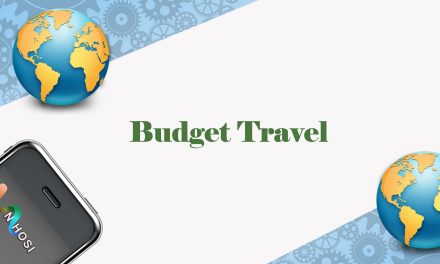Travelling abroad can be exhilarating. New cultures, mouthwatering cuisines, breathtaking sights – the allure is undeniable. However, one element can often turn a dream trip into a financial headache: foreign currency exchange. For anyone venturing across borders, understanding and managing foreign currency is essential to save money and minimise travel stress.
With the rise of technology, mastering foreign currency has never been easier – but where do you start? Whether you’re a seasoned globetrotter or preparing for your first overseas trip, this comprehensive guide will teach you actionable money-saving hacks to make the most of your hard-earned cash.
Why Foreign Currency Knowledge Matters for Every Traveller
Picture this: You’ve finally touched down in Paris after months of planning and set your sights on an authentic French croissant. But at the till, you’re handed a baffling receipt – confusing exchange rates and hidden fees have already eaten into your budget.
Currency exchange is more than just swapping one type of money for another – it’s an art. With fluctuating exchange rates, varying service fees, and sneaky bank mark-ups, even a small oversight can cost you dearly. Being proactive about foreign currency management allows you to not only save money but also avoid unnecessary hassle.
1. Understand Exchange Rates and How They Work
Before tackling money-saving hacks, it’s crucial to understand the basics. Exchange rates fluctuate constantly, and these small changes impact how far your money will take you abroad. Essentially, the exchange rate is how much one currency is worth relative to another.
Key Tips:
- Monitor Exchange Rates Before Your Trip: Websites like XE.com and OANDA offer real-time rate information. Tracking rates in the weeks leading up to your trip can help you identify favourable times to exchange.
- Be Wary of Mark-Ups: Understand that the rate you see online may not match what banks or currency exchange bureaus offer. Providers often add their “spread” (hidden profit margin), meaning you receive less favourable rates.
2. Avoid Airport Currency Exchange Counters (Every Time)
You might be tempted to quickly exchange money upon landing – but airport currency exchanges are notorious for sky-high fees and poor rates. Why? They know they’re your last resort. Avoid them at all costs.
Alternatives:
- Exchange Currency Before You Travel: Visit your local bank or currency exchange service and exchange a small amount before leaving home.
- Use ATMs Abroad (Selectively): ATMs often provide better rates than airport kiosks, but only if you avoid excessive withdrawal fees (more on this later!).
3. Leverage Technology for Currency Conversion
In a tech-driven era, travellers no longer need to rely on bulky cash or navigate confusing conversions on paper. Mobile apps and digital solutions can simplify the process.
Best Apps for Currency Management:
- Revolut & Wise (Formerly TransferWise): These apps offer real-time competitive exchange rates and low conversion fees, making them travel must-haves.
- XE Currency App: For on-the-go rate checks, XE provides reliable conversion rates and historical trends.
- Splitwise: Travelling in a group? This app tracks expenses across multiple currencies, ensuring no one is left footing more than their share.
❗ Pro Tip: If you use any mobile banking app, look for one that supports multi-currency accounts. With apps like Revolut, you can convert currencies at interbank rates and carry multiple balances in foreign currencies.
4. Smart Payment Options: Cards vs Cash
One of the perennial questions for travellers is how much cash to carry. While cash can sometimes offer convenience in foreign markets, overloading your wallet comes with risks (think theft or loss). Similarly, relying solely on credit or debit cards isn’t always ideal.
What’s the Right Balance?
- Use Credit Cards Strategically: Many credit cards offer favourable exchange rates when used abroad. Look for cards with no foreign transaction fees, such as the Chase Sapphire Preferred or Revolut Metal (for UK users).
- Carry Local Cash for Small Purchases: Keep enough cash for daily expenses like public transport or meals at small cafes. Avoid withdrawing large amounts to prevent excess fees or theft risks.
- Opt for Contactless Payments: Many regions embrace contactless apps like Apple Pay and Google Wallet, which are more secure and often fee-free.
5. Say “No” to Dynamic Currency Conversion (DCC)
When paying with a card abroad, merchants may offer to charge you in your home currency instead of the local one. While this might seem convenient, it’s often a trap known as Dynamic Currency Conversion (DCC). Converting directly on-site typically results in heavily inflated rates and fees.
Best Practice: Always choose to pay in the local currency. This lets your bank or card provider handle the conversion at their standard rate, which is likely more competitive.
6. Maximise Travel Cards and Reward Programmes
Are you taking advantage of travel-specific credit cards packed with perks? These can be game-changers for frequent travellers.
Benefits of Travel Cards:
- Access Global ATMs Without Extra Fees: Some travel cards refund foreign ATM withdrawal fees.
- No Foreign Transaction Fees: Cards like the American Express Platinum or Barclaycard Rewards minimise hidden costs when spending abroad.
- Earn Rewards: Many travel cards come with points, air miles, or cashback rewards, helping you save money for future trips.
Pair your travel card with the services offered by Nihosi Travels by visiting their website. They assist travellers in leveraging tech-rich travel solutions that align with your budget and maximise savings.
7. Minimise Bank and ATM Fees
Withdrawing cash from foreign ATMs can drain your wallet if you’re not careful. ATM providers might charge withdrawal fees, and your bank at home may also issue its own charges.
Hacks to Keep ATM Costs Low:
- Choose the Right Bank Account: Some banks, like Monzo or Starling Bank in the UK, waive international withdrawal fees. Consider switching to one with travel-friendly perks.
- Withdraw Larger Amounts (But Not Too Much): Minimise trips to the ATM to reduce fees, but balance it out to avoid carrying excessive cash.
- Avoid Off-Brand ATMs: Stick to reputable bank ATMs over standalone machines, which often charge higher fees.
8. Prepaid Cards: Are They Worth It?
If you’re wary of carrying cash or using your primary credit card abroad, prepaid travel cards offer a safer alternative. These cards let you pre-load a specific amount in your chosen currency and can be used like debit cards.
Advantages:
- Lock in Exchange Rates Before Travel: Protect yourself against currency fluctuations.
- Budget More Effectively: Prepaid cards enforce spending limits since you can’t overspend.
Popular choices in the UK include Revolut, Caxton FX, and FAIRFX cards. While they’re not perfect for every need, they’re ideal for cautious spenders.
9. The Role of Travel Agencies Like Nihosi Travels
Mastering foreign currency is all about preparation, and travel agencies like Nihosi Travels make tech-enabled planning seamless. By collaborating with finance experts and offering tailored itineraries, Nihosi Travels can help you maximise savings and reduce costs during international trips.
Head over to Nihosi Travels to explore travel packages that integrate innovative tools like multi-currency wallets, AI-guided planning, and up-to-date financial advice.
FAQ: Your Top Foreign Currency Questions Answered
1. Should I exchange money before travelling or wait until I’m at my destination?
A mix is ideal. Exchange small amounts before travelling for immediate expenses, but research if local ATMs or banks will offer better rates.
2. Can I rely solely on credit cards for my trip?
While credit cards are convenient, it’s smart to carry some cash, especially for small establishments or destinations where cards aren’t widely accepted.
3. Is it better to withdraw cash abroad or exchange at home?
Withdrawal fees can sometimes make exchanging at home a cheaper option. This depends on your bank’s fee structure and local ATM rates.
4. Are online exchange platforms reliable?
Yes! Platforms like Wise and Revolut provide excellent rates and low fees, often far better than traditional banks or kiosks.
Final Thoughts: Make Your Hard-Earned Money Go Further
From locking in good rates to using tech-savvy tools, mastering foreign currency doesn’t have to be daunting. The key lies in planning ahead, choosing the right payment methods, and embracing modern financial solutions.
With a bit of knowledge and the right hacks, you’ll spend less time worrying about money and more time soaking in the sights and experiences that make travelling truly magical.
For an enhanced experience, let Nihosi Travels equip you with revolutionary tools and custom plans to make your journey not just affordable, but extraordinary! Safe travels!












Subscribe To Our Newsletter
Join our mailing list to receive the latest news and updates from our team.
You have Successfully Subscribed!